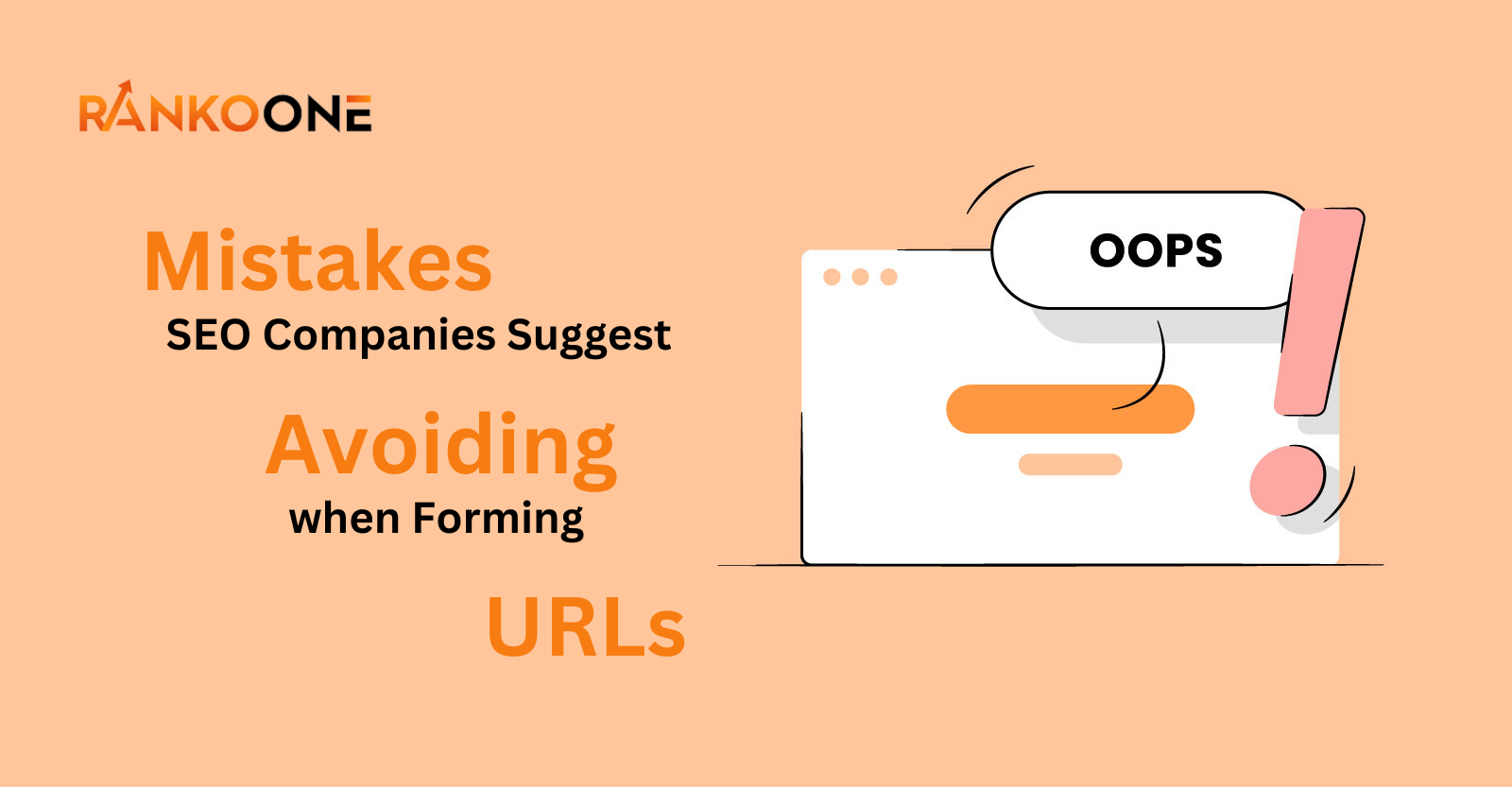Mistakes SEO Companies Suggest Avoiding when Forming URLs
SEO has become a crucial need for businesses as the majority of businesses in the world have already stepped in the online market or are in the process of it. They need to increase the web traffic to their websites and increase the conversion rates. To make it happen, businesses use different SEO strategies and techniques to grow their business.
When you are working on the SEO of your website, you pay attention to a lot of factors such as searching for relevant keywords, creating optimized content, optimizing meta titles and meta description, etc. While doing all that, you cannot undermine the importance of another factor, URLs of your website. You need to create effective and SEO friendly URLs for your website as a part of your SEO strategy.

You need to understand why it is important to put effort into constructing effective URLs. If your URLs are not optimized for SEO, it will become difficult for search engines and users to read and understand the content of your website. On the other hand, if you have constructed well-structured and effective URLs, it will improve the online visibility and ranking of your website on search engines result pages and also improve the user experience.
Here are some common mistakes that SEO companies suggest avoiding when forming URLs:
Dynamic URLs with Unreadable Characters
When you are writing the URLs for your website, you should make sure that these URLs are easy to read and understand. You should create URLs that are static, descriptive, and easy to read. You should avoid adding numbers, special characters, and query parameters in the URLS. If you do that, your URL will not be understandable for search engines and as a result, your website will not be able to rank in search results.
Long and Complex URLs
When you are constructing your URLs, you should keep it in mind that you should not create long URLs. Your URLs should be short and concise, and they improve the user experience too. Such URLs are easy for search engines to understand, and they make it easier for search engines to rank your website in search results. On the other hand, lengthy URLs make it difficult for search engines to understand the content of your website.
URLs with Stop Words and Irrelevant Words

You should not use stop words like “and”, “but”, “the”, etc., and irrelevant words in the URLs of your websites. Best SEO companies in Dubai recommend that you should only use relevant words in the URL. You should add words and phrases that are related to the content on your webpages to the URLs. If you add meaningful and relevant words to your URLs, it helps the search engines to understand the content on your website.
Non-Descriptive URL Structures
Best SEO company in Dubai recommends avoiding using non-descriptive URLs for your website. If your URLs are lacking descriptive keywords, it will hinder the effect of the SEO strategies. That is why you should use descriptive keywords that describe the content on your webpages. As a result, search engines will easily understand the content on your webpages and rank them in the search results accordingly.
Inconsistent URL Formatting
You should choose a URL formatting technique for your URLs and make sure that you use the same formats for all URLs on your website. SEO agencies Dubai put emphasis on being consistent in formatting the URL structures for all of your webpages. When all your URLS are consistent, they give your website a cohesive and organized appearance. They also help the search engines and users to navigate your website with ease.
Ignoring Hyphens for Word Separation
Most people tend to use underscores or concatenating words to separate the words in the URLs instead of hyphens. SEO companies recommend using hyphens for separating words in the URLs. Search engines read hyphens as word separators and using hyphens increase the readability of your URLs.
Conclusion
In summary, forming SEO-friendly URLs involves creating concise, descriptive, and consistent structures that include relevant keywords, use hyphens for word separation, and prioritize user and search engine readability. Avoiding these common mistakes will help optimize your website‘s URLs for improved search engine rankings and user engagement.


